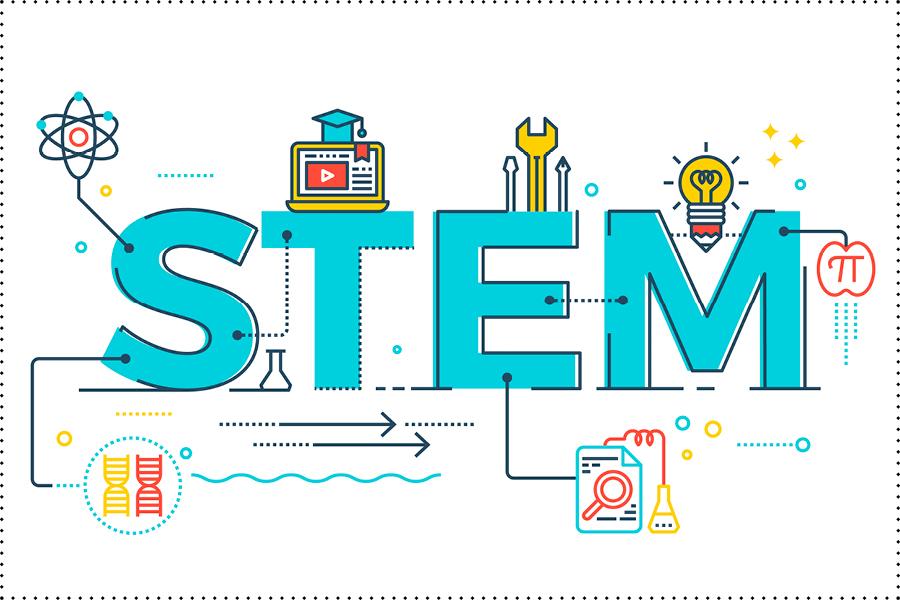
The level of education and the skills required in the 21st century are very different from those needed in the previous century. Careers of the future will require workers with strong technical knowledge and skills as well as the ability to solve problems, think creatively, work collaboratively, and function as lifelong learners. While education in general is critical to the nation’s future, it is widely recognized that the specific skills often acquired in the study of science, technology, engineering, mathematics, and medicine (STEMM) fields are increasingly needed across the economy.
In order to meet the challenges of our changing economy and maintain U.S. leadership in innovation and competitiveness, we need to develop talent from across all sectors of our society, including among those who may not in the past have been afforded a quality education or those for whom society has not had expectations for success in STEM fields. Our reports provide a comprehensive road map for increasing involvement of absent and underrepresented minorities, including the elimination of racial and gender bias in academia and recruiting women students and faculty in science and engineering.
Minority Serving Institutions: America’s Underutilized Resource for Strengthening the STEM Workforce
There are over 20 million young people of color in the United States whose representation in STEM education pathways and in the STEM workforce is still far below their numbers in the general population. Their participation could help re-establish …
Over the last few decades, research, activity, and funding has been devoted to improving the recruitment, retention, and advancement of women in the fields of science, engineering, and medicine. In recent years the diversity of those …
In recent decades, important gains have been made with respect to the participation of women in science, technology, engineering, and medical (STEM) disciplines at the undergraduate and graduate levels in the United States. More women than ever …
The Next Generation of Biomedical and Behavioral Sciences Researchers: Breaking Through
Since the end of the Second World War, the United States has developed the world’s preeminent system for biomedical research, one that has given rise to revolutionary medical advances as well as a dynamic and innovative business sector …
Black men are increasingly underrepresented in medical schools and in the medical profession. A diverse workforce is a key attribute of quality healthcare and research suggests that a diverse workforce may help to advance cultural competency and …
Assessing and Responding to the Growth of Computer Science Undergraduate Enrollments
The field of computer science (CS) is currently experiencing a surge in undergraduate degree production and course enrollments, which is straining program resources at many institutions and causing concern among faculty and administrators about …
Data Science for Undergraduates: Opportunities and Options
Data science is emerging as a field that is revolutionizing science and industries alike. Work across nearly all domains is becoming more data driven, affecting both the jobs that are available and the skills that are required. As more data and …
Building America’s Skilled Technical Workforce
Skilled technical occupations—defined as occupations that require a high level of knowledge in a technical domain but do not require a bachelor’s degree for entry—are a key component of the U.S. economy. In response to globalization and …
Seeking Solutions: Maximizing American Talent by Advancing Women of Color in Academia is the summary of a 2013 conference convened by the Committee on Women in Science, Engineering and Medicine of the National Research Council to discuss …
The Science of Effective Mentorship in STEMM
Mentorship is a catalyst capable of unleashing one’s potential for discovery, curiosity, and participation in STEMM and subsequently improving the training environment in which that STEMM potential is fostered. Mentoring relationships provide …
How People Learn II: Learners, Contexts, and Cultures
There are many reasons to be curious about the way people learn, and the past several decades have seen an explosion of research that has important implications for individual learning, schooling, workforce training, and policy.
In 2000, …
Graduate STEM Education for the 21st Century
The U.S. system of graduate education in science, technology, engineering, and mathematics (STEM) has served the nation and its science and engineering enterprise extremely well. Over the course of their education, graduate students become …
In order for the United States to maintain the global leadership and competitiveness in science and technology that are critical to achieving national goals, we must invest in research, encourage innovation, and grow a strong and talented science …












